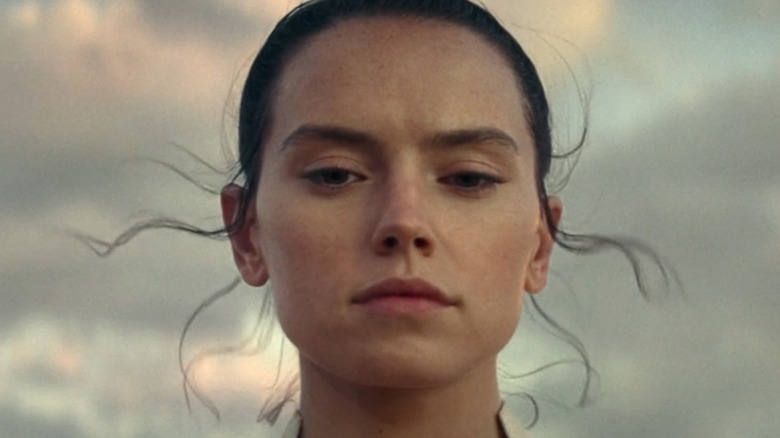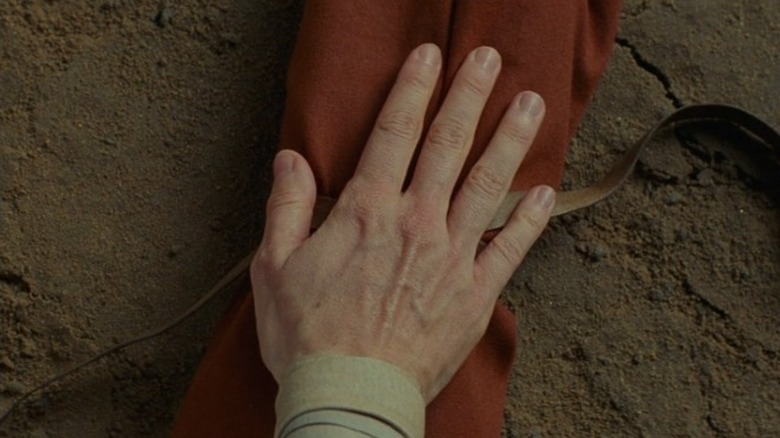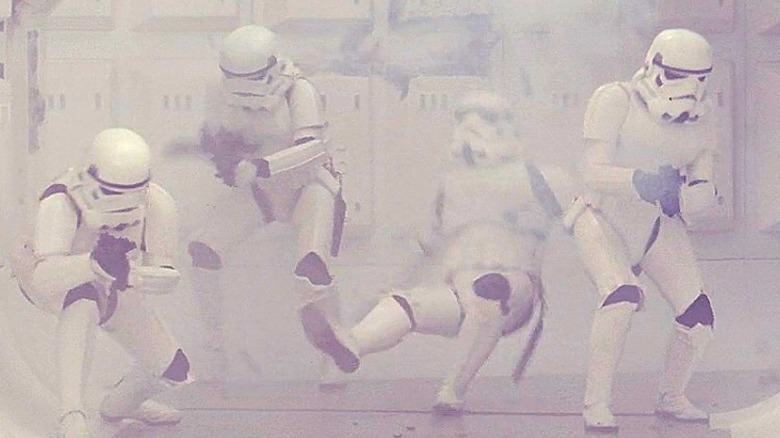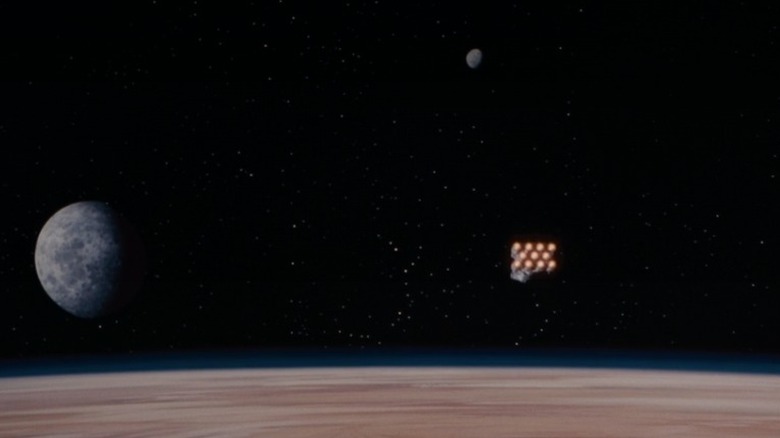The Upcoming Star Wars Films Have A Major Problem To Solve And It Isn't A Secret
In 2019, months before the release of "Star Wars: Episode IX – The Rise of Skywalker," Disney announced its plan to add three more "Star Wars" feature films to its schedule (via The Wrap). Though originally scheduled for a 2022 roll-out, the films are now slated to hit theaters in 2023, 2025, and 2027, according to Games Radar.
The disappointment of eager fans notwithstanding, this delay could, and should, allow the powers that be some time to think about what the franchise must do if it hopes to avoid failing the narrative's potential for growth. Thankfully, the answer to that question is abundantly clear: the franchise needs to move away from its beloved Skywalkers.
Since its debut in 1977, George Lucas' now culturally pervasive franchise has revolved around the family, even in projects that fall outside the main nine episodes' overarching story. The glimpse of a young Luke Skywalker in the Season 2 finale of "The Mandalorian," for instance, strongly implied that Season 3 would (at minimum) address the two decade-plus gap in the Jedi's life that occurred between 1983's "Return of the Jedi," and 2015's "The Force Awakens." If the upcoming trilogy chooses to maintain a focus on the Skywalker Saga, that means it will have been doing so for nearly 50 years. That's simply too much time to spend on a single hero's journey, particularly one that has already repeated its point.
The Skywalkers have already said all they can say
On an allegorical level, "Star Wars" is a pretty basic story. Like several mythologies and religions, its main concern is the eternal conflict between good and evil. In the Skywalkers, the film shows that the struggle to resist evil is both ongoing and inherent. A father may not be able to resist it, but that doesn't mean his offspring can't, provided they put their back (or hand) into it.
Darth Vader and Luke's differing response to this struggle suggests that while both require sacrifice, it is infinitely more difficult (read: more admirable), to maintain one's faith in a higher, more righteous power than it is to succumb to the allure of being all-powerful ourselves. It's a theme the masses have responded to for centuries, and one for which Joseph Cambell's "Hero's Journey" acts as a perfect template. But how long can audiences repeat the same journey, over and over, before they begin asking, "Are we almost there yet?"
Since the first six chapters used the same family conflict to investigate this theme, what felt unexpected and poignant in the original three films had already lost its luster by 2015. Rather than view "The Force Awakens" as an intentional mirroring (or, "re-awakening") of "A New Hope," many saw the former as plain lazy (via IndieWire). At this point, short of having Mark Hamill's Luke succumb to the Dark Side (which would alter the narrative's thesis indefinitely), the Skywalkers have already said all they can possibly say about the nature of good and evil.
Introducing new threads could disarm toxic fans
Speaking of evil, one of the many benefits of moving away from the well-worn Skywalker saga is that it could quiet the franchise's more toxic fandom (outlined at-length by Medium's Joel Eisenberg). These particularly unpleasant "lovers" of the franchise have long-dismissed anything they view as a change in canon, sometimes in ways that have caused genuine harm to the individuals involved in a given installment (via BBC, Forbes, and Esquire).
The most efficient way to disarm a canon-obsessed fanbase is to give them something new, but entirely plausible as canon. We're dealing with a whole galaxy, after all, not a small Space Neighborhood. As with any exercise in world-building, there are infinite threads that Lucas' original script establishes, but doesn't have the time or space to examine. This was the direction Beau DeMayo took in "The Witcher: Nightmare of the Wolf," an animated prequel to Netflix's "The Witcher." By focusing on an established but never fully-investigated character (a young Vesemir), DeMayo was able to avoid a large portion of the backlash the main series has received from fans confused by the fact that they're watching a TV show, and not re-reading the original books in picture form.
Like throwing a shiny candy bar wrapper at a bear, or pulling a Jedi mind trick, re-focusing the narrative's storyline could prove at least temporarily effective. What's more, it could earn the franchise a fresh fan base — one that doesn't feel such ownership over the Skywalker story.
Even the creative team is ready to move on
You know it's time to give up the (Force) ghost when even the folks most concerned with making a profit (which, in franchise world, usually means playing it safe) are ready to move on and say something new. In 2019, Lucasfilm President Kathleen Kennedy told Entertainment Weekly that the franchise would be taking a brief hiatus, in order to, as she says, "really look at where this is going from the standpoint of a saga," adding, "we're looking at: 'What is the next decade of storytelling?"
In the same interview, Kennedy confirmed that "The Rise of Skywalker" was meant to conclude the family's narrative, and referred to the hiatus and future films as a great chance to roam around the broader "Star Wars" universe and take a look at some lesser-explored corners and characters. Two years later, "Star Wars: Visions" executive producer Kanako Shirasaki echoed this sentiment, revealing that the team insisted the various anime studios involved explore new characters, as opposed to relaying another tired tale about the Skywalkers (via ITM).
The Skywalkers had a good run. For over 45 years, they've stood as the symbolic center of the galaxy, the proverbial father-son around which the "Star Wars" solar system revolves. But as any space nerd worth their salt will tell you, the universe itself is constantly expanding, as are the galaxies within it (via Scientific American). Surely, this should be as true of the galaxy far, far away as it is of any other galaxy.



